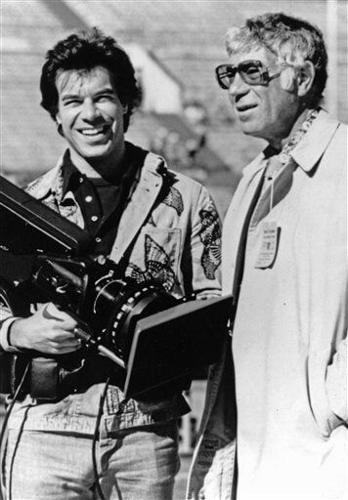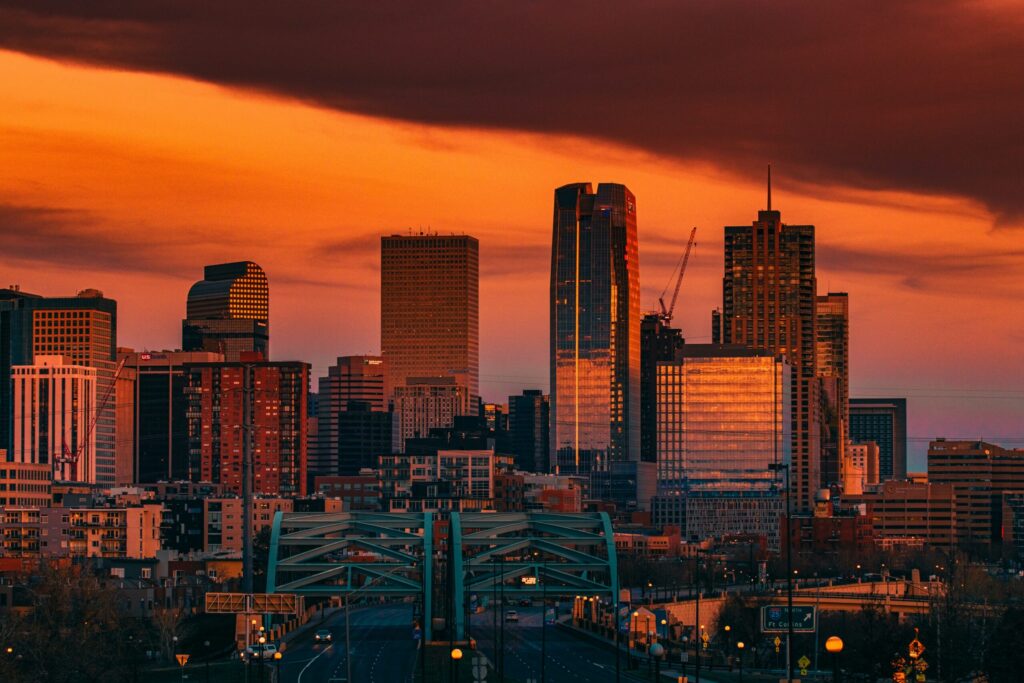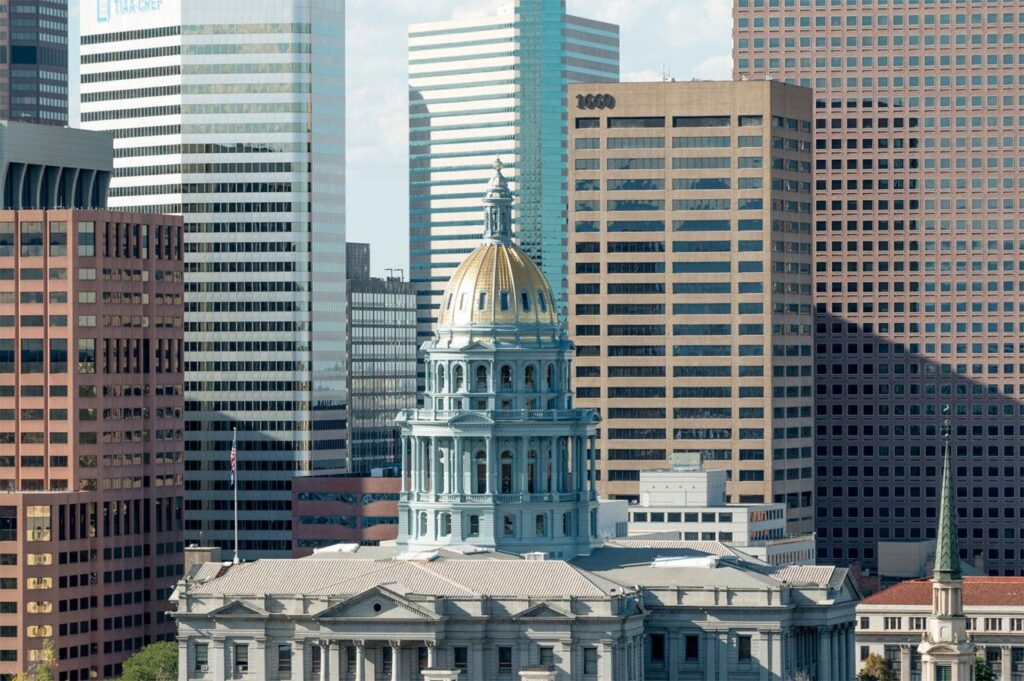How the Super Bowl got its superpower | Vince Bzdek

NFL Photos
The summer of 2015, just before the magical season when Peyton Manning took the Broncos back to the Super Bowl, my 13-year-old son and I decided to watch every single Super Bowl game in history.
We started with the Broncos’ 1998 and 1999 victories under John Elway, because I felt it was my duty as a Colorado native to fully indoctrinate my football-mad son in Orange Lore, even though we lived in Washington, D.C., at the time.
A deep understanding of The Drive, The Fumble, The Three Amigos and The Orange Crush are a necessary piece of every football lover’s education really, and I was terrified that my son might become a Redskins fan by default.
You could actually buy every Super Bowl every played at the time on a DVD for $98. And the reason for that is the great production company, NFL Films, which might be the main reason football became America’s favorite sport to watch in the last few decades. There is no such thing as NBA Films, or MLB Films, or NHL Films (though there should be.) But NFL Films has recorded every single game, every fabled moment, and in the process, created an empire.
These films, mind you, are not just old broadcasts put on tape. These are works of mythic art, with epic clashes of muscle-bound titans set to stirring, martial music and narrated by the Voice of God himself (also known as the booming baritone John Facenda, former anchorman). NFL Films was where you went for superhero movies before Marvel finally figured the thing out.
Ed Sabol, the creator of NFL Films, and his creative secret weapon — son Steve, a Colorado College grad — brought Hollywood-style moviemaking to football, deploying multiple cameras, bird’s-eye views, stunning cinematography and dynamic editing.
They filmed slow-motion spirals landing perfectly in outstretched hands, zoom-in close-ups of lineman thudding into each other, their breath visible like snorting bulls. They put microphones on quarterbacks, capturing the WHAMs and THUMPS as bodies collide.
They turned things like John Elway’s desperate 98-yard, final-minutes drive in the AFC Championship Game into legend.
Ed Sabol got started filming Steve’s high school football practices and games, building a 25-foot tower near the field for better angles. After more experimenting in a plane with a camera he got for Christmas, he decided to bid for film rights to the 1962 NFL championship game (now known as the first Super Bowl). He had to persuade NFL commissioner Pete Rozelle that his experience filming high school games had prepared him for the job.
Somehow, it worked.
Then Ed Sabol summoned his son Steve, who was a junior at Colorado College, back to their hometown of Philadelphia to help film the game.
They went on to build a multimillion dollar business and elevate the sport into America’s Game. With 112 million TV viewers a year, football is by far the country’s most watched sport.
Art Modell, the owner who moved the Cleveland Browns to Baltimore, once told the New York Times that the Sabols “sold the beauty of the game.” Sports Illustrated called NFL Films “perhaps the most effective propaganda organ in the history of corporate America.”
According to an interview with one of our Gazette reporters many years ago, Steve Sabol gave credit for some of the creative work in NFL Films to CC Football Coach Jerry Carle. “He was so creative and so inventive,” Sabol said of Carle.
“He gave me a tremendous technical background for football. A lot of the stuff that we do on NFL Films first appeared on the field at Colorado College.”
“My dad wanted to show the game the way Hollywood portrayed fiction with a dramatic flair,” Steve told USA Today (via the Los Angeles Times) in 2008. “I wanted to show the game the way I had experienced it as a player—with the eyeballs bulging and the veins sticking out and the snot flying. We blended those two styles.”
I give Steve’s liberal arts education some of the credit, too. Steve has said he drew inspiration from international cinema, opera and the fine arts to tell stories about football.
He studied art while at CC, and his editing imitated Akira Kurosawa, the Japanese filmmaker who created the epic “Seven Samurai” and who only hardcore English professors would have known back in the 1960s. Director Sam Peckinpah, master of classic Westerns like “The Wild Bunch,” once credited NFL Films for giving him the idea to do a slow-motion gunfight scene.
In a 2004 interview with CBS, Steve put it this way: “Dad always used to say, ‘Tell me a fact, and I’ll learn. Tell me a truth, and I’ll believe. But tell me a story, and it will live in my heart forever.’ ”
And so NFL Films went in-depth with profiles and personalities, making literary characters out of Vince Lombardi, Bart Starr, Joe Namath, Johnny Unitas and Gale Sayers.
Watching all those Super Bowls with my son we learned as much about American popular cultural history as football history. Over all those decades, Sabol father and son have left us a seamless, uplifting tale of America at play.
NFL Films has won 131 Sports Emmy Awards to date, the most honored sports filmmaking company in the world.
Steve Sabol alone won 35 Emmys throughout his career at NFL Films, which spanned almost 50 years.
I’ll be thinking of Steve’s love of the game as I sit down to take in Super Bowl LVII Sunday. And I’ll be reliving that perfect summer with my 13-year-old son when we watched every Super Bowl ever played, and then hustled out after each one of them to the park and threw epic sideline catches to each other — imagining the crowd going wild each time — until it was too dark to see the ball. We always quoted the Voice of God when we were done:
“It begins with a whistle, and ends with a gun.”
The opposite of hell, according to Sabol, must have been a football stadium.
“So they talk about heaven, and I don’t know what is waiting for me up there,” Steve said in one of his last statements, released by NFL Films shortly before he died in 2012.
“But I can tell you this: Nothing will happen up there that can duplicate my life down here. That life cannot be better than the one I’ve lived down here, the football life. It’s been perfect.”
Vince Bzdek, executive editor of the Denver Gazette, Colorado Springs Gazette and Colorado Politics, writes a weekly news column that appears on Sunday.












